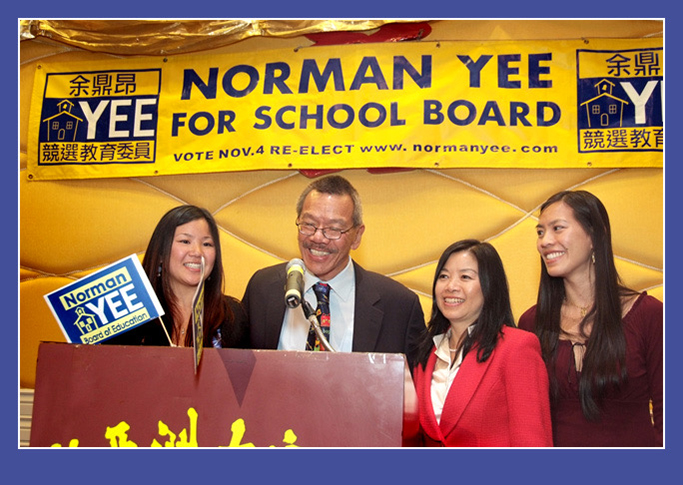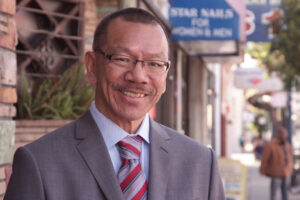
“I am proud to be a Chinatown kid who grew up to be of consequence at City Hall for my own community, and for the City I love. I hope one day my story will be one that creates a history that affords others new futures.” — Norman Yee
The UC Berkeley Oral History Center is proud to announce the release of Norman Yee: Serving the People of San Francisco, From Chinatown to the Board of Supervisors. For most residents of San Francisco, Yee needs no introduction. He is a former member of the Board of Education and Board of Supervisors, elected positions in which he served for sixteen years. Before politics, we worked for over two decades as an innovative facilitator and advocate of multicultural education in San Francisco.

Born and raised in San Francisco’s Chinatown, Yee grew up within a large extended family and spent much of his childhood and teenage years working at his parents’ grocery store. He attended Galileo Academy of Science and Technology, and upon graduation continued his education at City College of San Francisco and UC Berkeley, where he earned a bachelor’s degree in civil engineering. Yet, his career as an engineer barely lasted six months. Although he had a mind for mathematics, his heart drew him to education and the overlooked needs of the children in Chinatown. Leaving his position at Cal OSHA, he volunteered at the Chinatown YWCA, where he worked with the neighborhood’s youth and became involved in several projects aimed at expanding the resources and programs available to children and families in the neighborhood. By 1978, he decided that early childhood education was his calling, and entered the Teacher Corps, a two year program that asks candidates to work in urban school district, in this case East Palo Alto. In exchange he would receive his Master of Arts degree in elementary education.
Yee began his career in early care and education at Wu Yee Children’s Services in Chinatown. There he helped develop one of the first curriculums in bilingual multicultural education. He also taught mixed language classes in the San Francisco School district, as well as ESL (English as a Second Language) courses at City College of San Francisco, where he played a critical role in creating unit-bearing ESL classes. Yee continued to expand the educational opportunities for immigrant and first-generation children. He was a founding member of the Alice Fong Yu Alternative School, the country’s first Chinese immersion public school. He also expanded both the resources and services offered by Wu Yee Children Services, and proved pivotal in the creation of San Francisco’s Public Education Enrichment Fund, a third of which is designated for early childhood programs and education.

Yee entered public office in 2004, marking a start to a political career that would see him serve two terms on the San Francisco Board of Education and two terms on the San Francisco Board of Supervisors. In both positions, he continued to be an unwavering advocate for early childhood education and public services for underrepresented populations in the city. He co-authored Proposition C in 2018, which created universal childcare in San Francisco, as well as Proposition W, which made City College free for San Francisco residents. After being severely struck by a car in 2005, he sponsored the Vision Zero initiative to increase pedestrian safety. He also successfully sponsored initiatives for police reform and one of the city’s most progressive senior housing developments. In 2010, he was elected president of the Board of Supervisors, and played a critical role in helping guide San Francisco through the COVID-19 pandemic.
Throughout his multiple careers, Yee confronted each challenge with hope, determination, and an unwavering commitment to the city and community he sought to serve. The Oral History Center is thrilled to bring his inspiring and untold story to the public.
Find this interview and all our oral histories from the search feature on our home page. You can search by name, keyword, and several other criteria.
About the Oral History Center
The Oral History Center of The Bancroft Library preserves voices of people from all walks of life, with varying political perspectives, national origins, and ethnic backgrounds. We are committed to open access and our oral histories and interpretive materials are available online at no cost to scholars and the public. You can find our oral histories from the search feature on our home page. Search by name, keyword, and several other criteria. Sign up for our monthly newsletter featuring think pieces, new releases, podcasts, Q&As, and everything oral history. Access the most recent articles from our home page or go straight to our blog home.